Introduction
- The necessity to introduce technology to urban schools is urgent to prepare students for modern demands of technologically advanced workplaces;
- Low level of technology use is observed among teachers, which puts in question the quality of education;
- Teachers’ integration into a technological environment is explained by a limited access to high-quality professional development programs;
- Deeper understanding of using technologies can be achieved through the application of flexible approaches, such as case development.
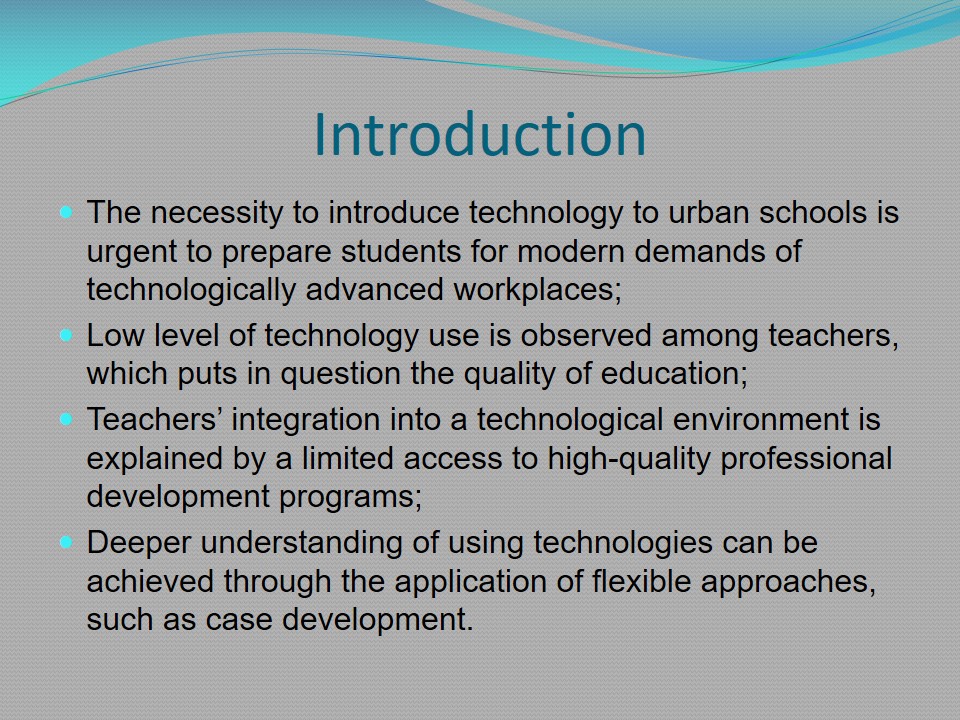
Literature Review: Theoretical Framework
- The research is based on Technological Pedagogical Content Knowledge (TPACK) aimed at describing teacher skills and knowledge necessary for successful technological integration (Mouza, 2011, p. 3).
- The framework is grounded on three bodies of knowledge: content knowledge, technological knowledge and technology knowledge. It also underscores the connections between the se bodies.
- The model contributes to developing and enhancing teacher knowledge of technology (Mouza, 2011, p. 4).
- Efficacy of TPACK and case development has been evaluated to define whether these methods are applicable to the given study;
- Specific attention should be paid to the research conducted by Doering et al. (2009) who have managed to outline the main aspects of TPACK model and case development;
- Recent empirical studies prove that practice-oriented PD programs have higher probability to promote shifts in teacher learning, as well as enhance students’ outcomes;
- Schools with low level of technology integration are less likely to introduce teachers with high technology skills (Greenhow et al., 2009/2010);
- Social status of students influence their communication and technology skills.
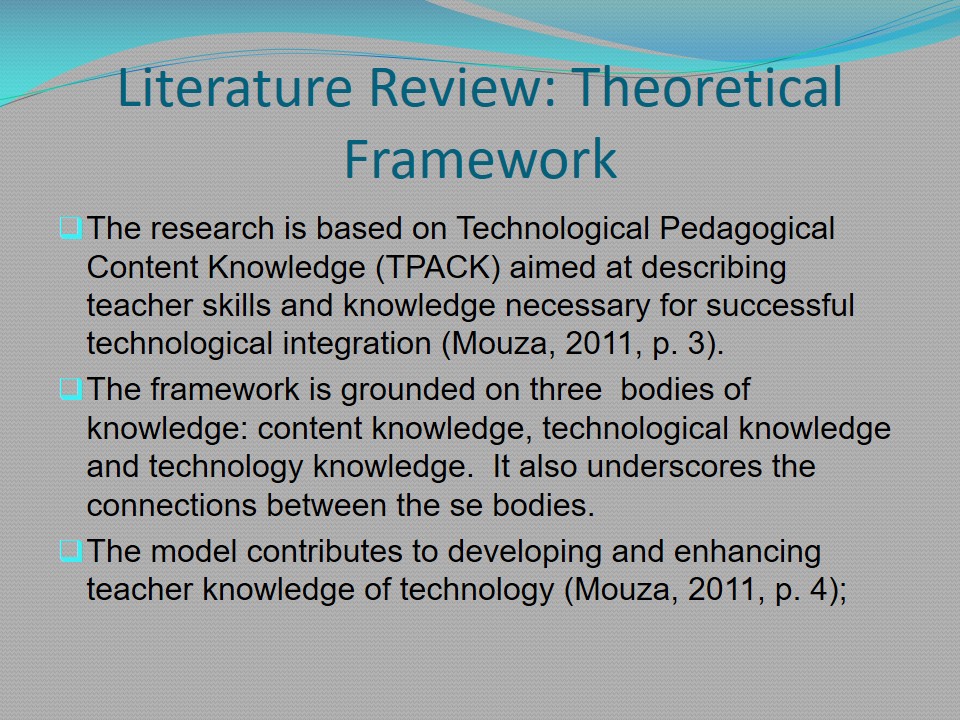
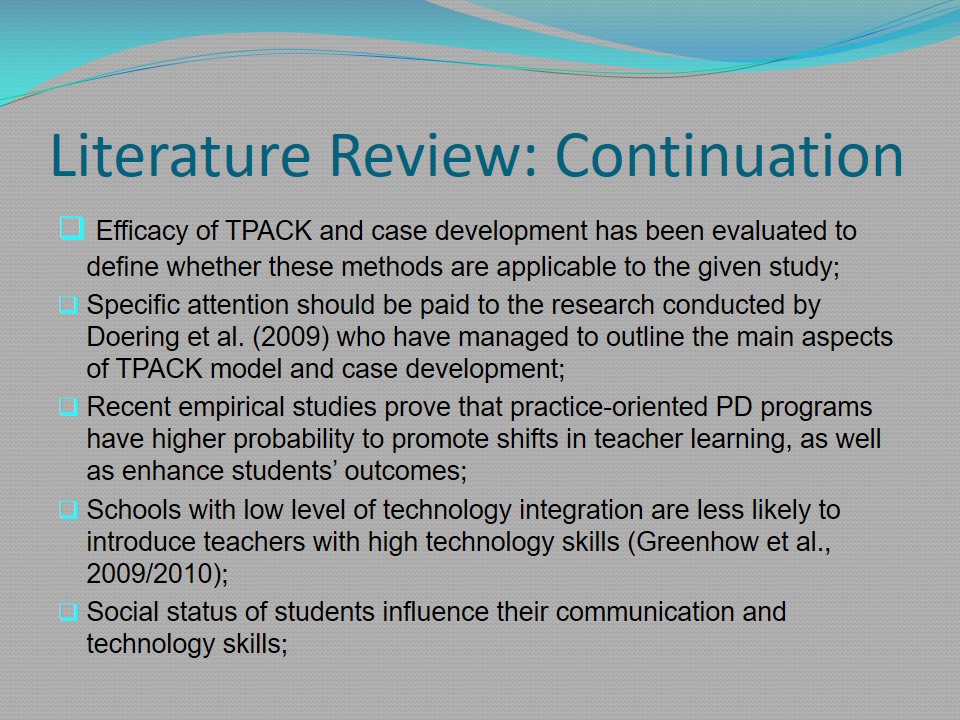
Methodology
- Participants – 8 teachers form urban schools with different teaching backgrounds and experiences;
- Teachers taught in diverse grade levels;
- 8 participants have been chosen out of 12 who were initially enrolled. 4 teachers failed to complete the program at technology institute;
- Primary data was collected from the analysis of teachers’ case stories representing comprehensive information and revealing high level of understanding;
- The observation of teachers experience in using technology has also been included into study to understand why teachers have problems with using computers, internet, and other networking skills;
- A two-part survey has been introduced to document changes in technology knowledge and analyze teachers’ needs while using technology;
- Case narratives and surveys have been analyzed together to deduce corresponding conclusions.
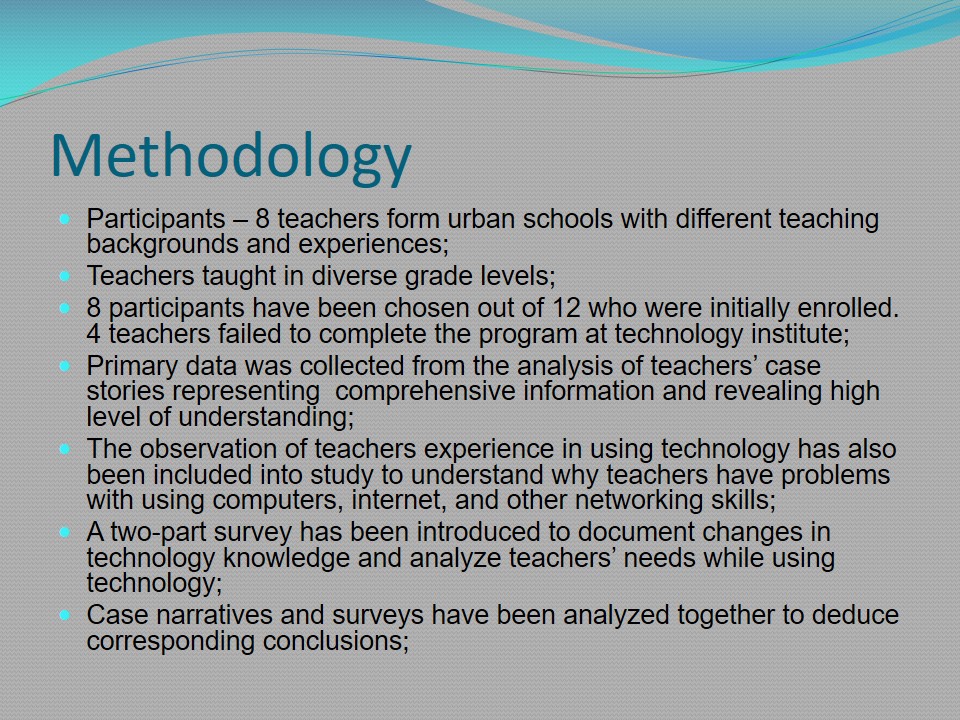
Conclusion
- A case development approach to the PD program has revealed that teachers are able to create connections among various elements of TPACK;
- Case development did not unveil the domination of technology due to the traditional outlook on technology use;
- Teachers strengthened their ability to relate content and pedagogy to technology; they also managed to link technological environment with the daily learning activities;
- TPACK approach has been highlighted in the course of interaction between teachers and students, as well as teachers’ ability to involve technology into the learning process.
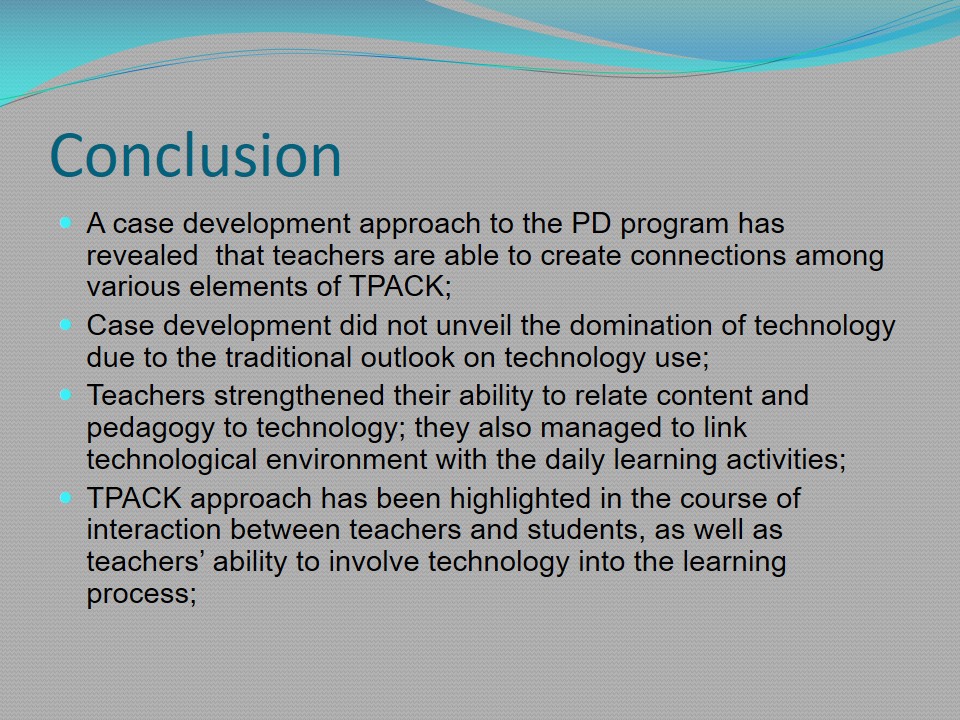
Implication
- It is purposeful to analyze how teachers are engaged in practiced-based programs and continue studying effective techniques of classroom teaching through reflection and analysis;
- In the light of technological changes, adaptability to advances is essential for meeting technologically advanced education;
- TPACK changes and growth in student learning are urgent to demonstrate to understand how the PD program works.
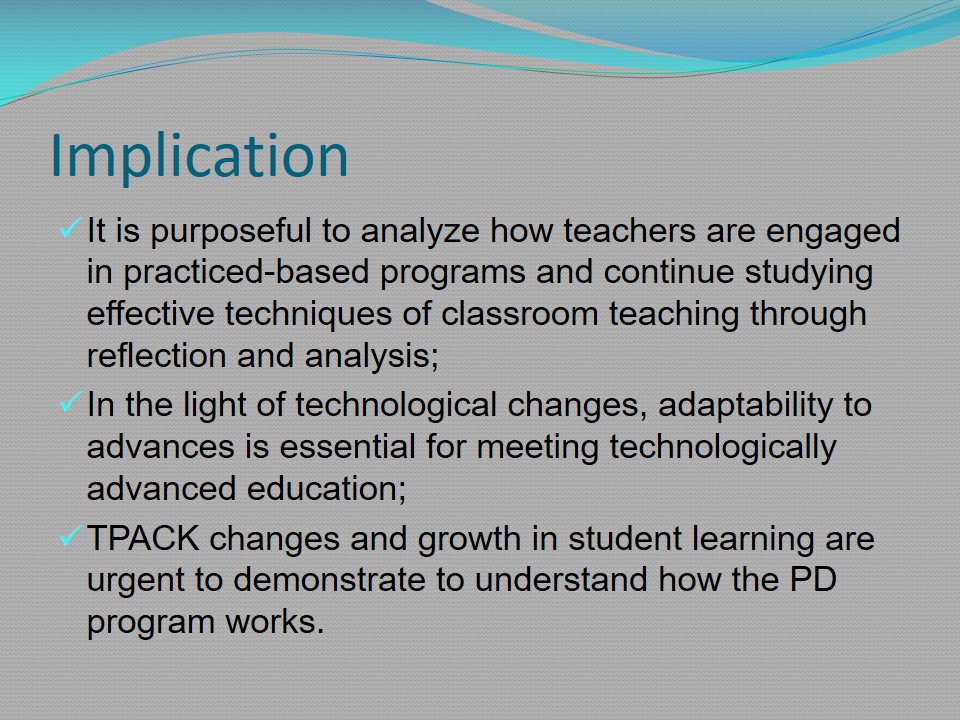
References
- Doering, A., Veletsianos, G., Scharber, C., & Miller, C. (2009). Using the technological,pedagogical, and content knowledge framework to design online learning environments and professional development. Journal of Educational Computing Research, 41(3), 319–346.
- Greenhow, C., Walker, J. D., & Kim, S. (2009/2010). Millennial learners and net savvy teens? Examining Internet use among low-income students. Journal of Computing in Teacher Education, 26(2), 63–69.
- Mouza, C. (2011). Promoting Urban Teachers’ Understanding of Technology, Content, and Pedagogy in the Context of Case Development. Journal of Research on Technology in Education, 44(1), 1-29.